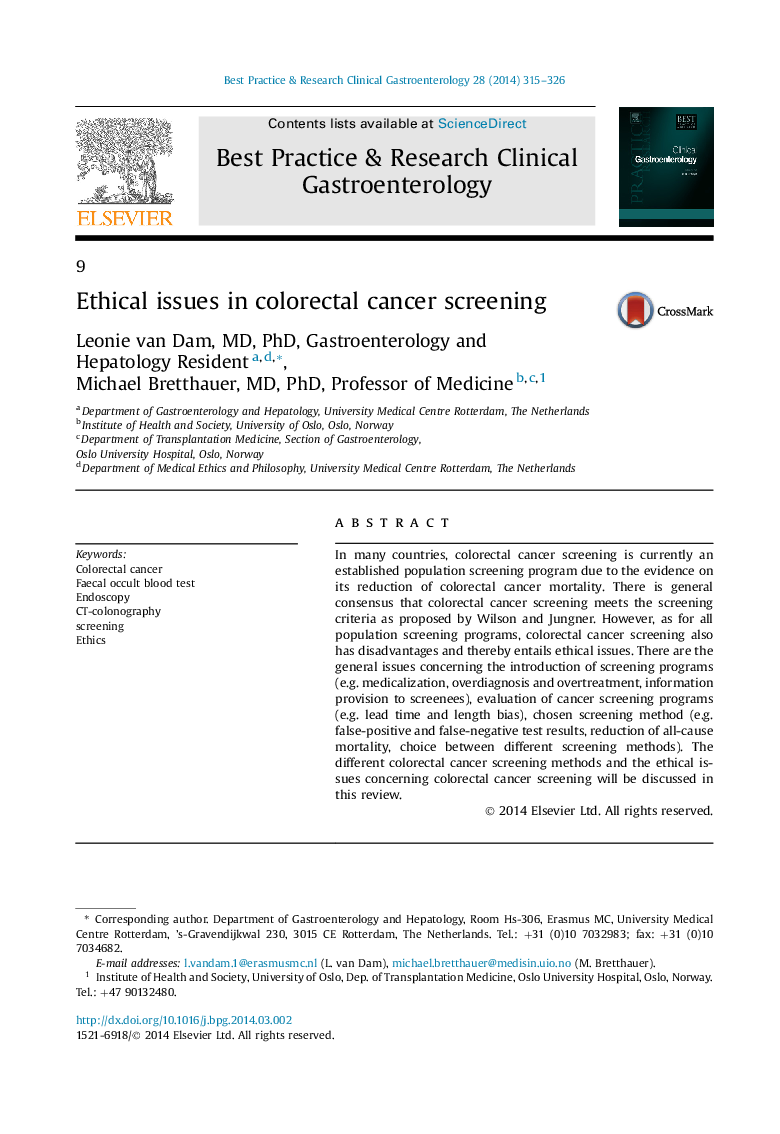| Article ID | Journal | Published Year | Pages | File Type |
|---|---|---|---|---|
| 3254145 | Best Practice & Research Clinical Gastroenterology | 2014 | 12 Pages |
In many countries, colorectal cancer screening is currently an established population screening program due to the evidence on its reduction of colorectal cancer mortality. There is general consensus that colorectal cancer screening meets the screening criteria as proposed by Wilson and Jungner. However, as for all population screening programs, colorectal cancer screening also has disadvantages and thereby entails ethical issues. There are the general issues concerning the introduction of screening programs (e.g. medicalization, overdiagnosis and overtreatment, information provision to screenees), evaluation of cancer screening programs (e.g. lead time and length bias), chosen screening method (e.g. false-positive and false-negative test results, reduction of all-cause mortality, choice between different screening methods). The different colorectal cancer screening methods and the ethical issues concerning colorectal cancer screening will be discussed in this review.
